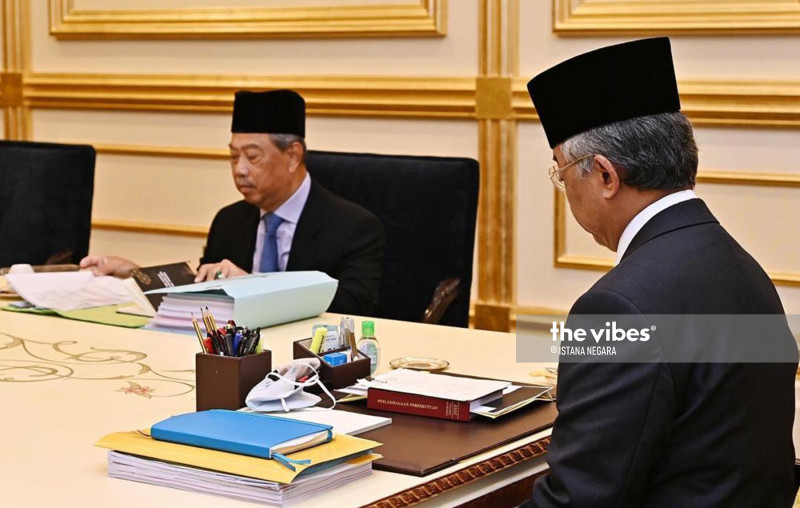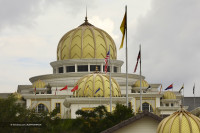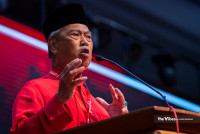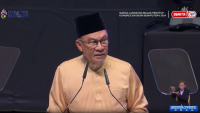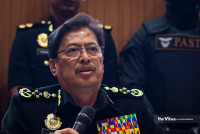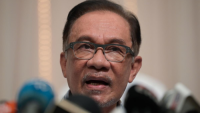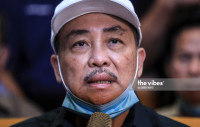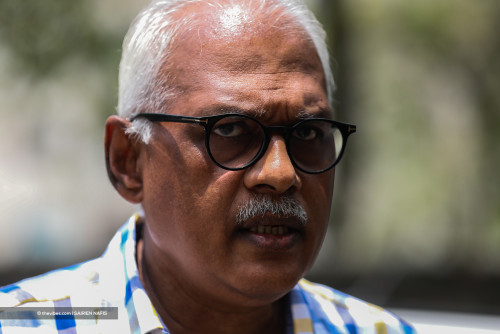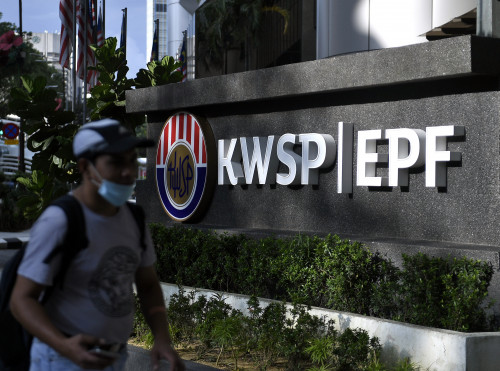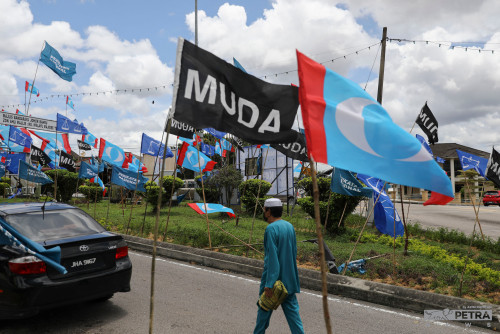UNDERSTANDABLY the proposal for the declaration of an emergency brings a lot of worry to the citizens of the country.
I don’t blame the people as internationally it is only done by someone who intends to gain power, and thereafter rule dictatorially.
Malaysia, on the other hand, has seen six emergencies declared during the confrontation with Indonesia, in Kelantan, Sabah, Sarawak and the worst was to curb riots caused during the May 13, 1969 incident.
But all these emergencies went in for a very limited period. The longest was the May 13 emergency that ended in 1971.
But for those who have lived as long as I have, we, the country came out stronger after the emergency was lifted. I’ve been reading in the media that there is a lot of speculations as to:
A. whether there will indeed be an emergency;
B. what type of emergency.
When I say what type I mean to what extent the people in the government are going to use those powers.
The Yang di-Pertuan Agong on Friday was met by the prime minister, who proposed instituting an emergency to curb the Covid-19 pandemic. The Agong has now decided to consult his brother rulers.
Under the federal constitution, the Agong is bound to follow the advice of His Majesty’s government, i.e the sitting prime minister and his cabinet; but it does not stop him from giving counter advice to the prime minister and the cabinet.
And I believe this is what His Majesty wants to do. He wants to consult his brother rulers and maybe summon the prime minister to express the consensus views of the rulers. This is also perhaps to ask the prime minister to reconsider his advice to the Agong.
In my opinion, if the prime minister still stands firm in his views, then the Agong is bound to follow his advice.
Now, this does not mean that the decision to proclaim an emergency cannot be challenged.
What can be challenged is the advice of the prime minister to the Agong. This was decided by a privy council case in 1979, in the case of Teh Cheng Poh v Public Prosecutor.
Let me say something as a businessman before being a judge.
Since the last few months, investors have been selling their shares and running out of Malaysia. Some say more will flee immediately after the emergency is proclaimed.
But people are running away from the country because of the political instability.
Businessmen and investors don’t like it when they are not sure what is going to happen tomorrow. Because every time a government changes, policies change.
They are happy when the government is stable because they know policies will remain for a certain period of time.
Look at the last government. Nothing happened within the 22 months they were ruling the country. Businessmen were not sure what was going on.
So, even if an emergency is proclaimed but the government when invoking the powers under the emergency do not abuse the power given, but use the power to rehabilitate the political situation and make it stable again, that would be good to the economy and to the country.
Of course, the opposition will say it is bad. Lawyers will also say it is bad. Some will refer to other countries where the prime minister becomes a dictator and holds on to the power of the emergency but in Malaysia, history has shown this has not happened.
We also do not know why the prime minister is seeking for the Agong to make the proclamation of emergency. Some speculate that it is to prevent a vote of no confidence. If that is the reason, then it is wrong.
On the other hand, if the proclamation is done to not allow an election now, which will result in the uncontrollable spread of Covid-19 as we have seen in Sabah, then in my opinion, it is valid.
Because if the country suffers from the pandemic, the result will be a threat to the economy and the lives of the people. In my opinion such declarations can be upheld by the courts.
Because when we declared the emergency for public order in 1969, the federal court held that even drug trafficking can result in a public disorder and held that detention under the Emergency (Public Order and Prevention of Crimes) Ordinance enacted pursuant to the 1969 declaration is valid, and upheld the detention.
If, however, it can be proven that the government is seeking the declaration of emergency only to prevent or protect its position then it is a mala fide act and can be declared ultra vires the constitution.
The risk of the Budget 2021 not being passed in case it is defeated and the prime minister loses the vote on the Budget and the vote of confidence that are not good grounds for declaring an emergency.
We must not also forget that an election in Sarawak is due in the next few months and we cannot deny that if it proceeds, campaigning will start soon. Campaigning means the risk of spreading the virus as we have seen in Sabah.
No doubt many people will say we will have tighter SOPs (standard operating procedures) but in theory I don’t think it could happen.
They could not do it in South Korea but there, two-thirds of voting had been done by post.
Meanwhile in New Zealand, the election was postponed until the country was clear of the virus. But when the election resumed, Covid-19 cases started to increase again.
The damage we saw here as a result of the election in Sabah was scary enough, and as a citizen I don’t want to face Covid-19.
As far as the general public is concerned, I think the large majority of the population want to get on with their daily lives and they are tired of the squabbling among politicians.
Alhamdulillah, my family and I are able to stay at home as we are fortunate enough to have sufficient funds for our daily needs. What about those who are suffering? Those who are not earning?
Here is one proposal: can all members of Parliament agree to pass a legislation so the federal election and state election can be postponed for, say, one or two years?
In the meantime, we fight Covid-19. And once Covid-19 is eradicated or we find a vaccine, we can revert to our usual practice and anyone can bring a vote of no confidence for an election to be held.
But if the pandemic spreads, then the (emergency) law allows the prime minister to postpone the election.
To me, let us wait for the Council of Rulers to make its decision and the prime minister to make his announcement. – The Vibes, October 25, 2020
Tun Zaki Azmi served as the sixth Chief Justice of Malaysia from 2008 to 2011.



